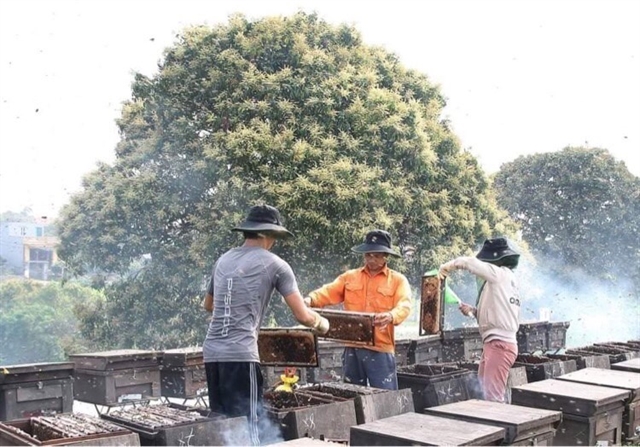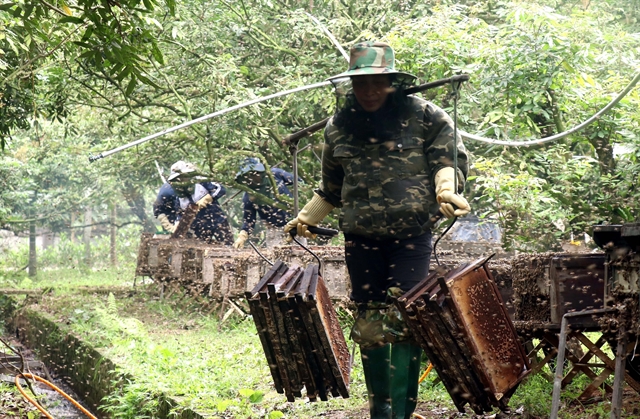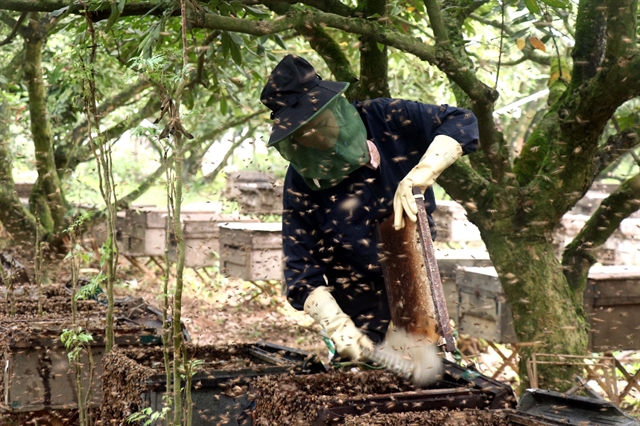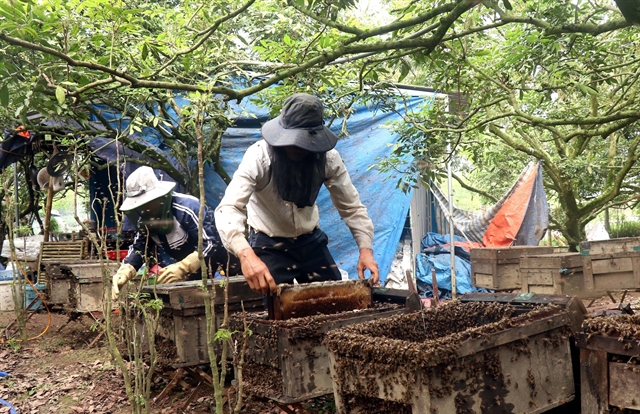 Life & Style
Life & Style

 |
| Locals harvest longan honey. VNA/VNS Photos Đinh Văn Nhiều |
HƯNG YÊN — With a total longan area of some 5,000ha, the northern Hưng Yên Province is considered Việt Nam’s “longan capital”. As spring transitions to early summer, the longan orchards of the province burst into bloom, heralding the arrival of the longan honey collecting season from April to May.
 |
| Each flower produces a different characteristic honey flavour, but the longan flower has a smooth, golden yellow colour. |
For 25-30 days, bees gather nectar from the longan flowers, creating a rich and flavourful honey that captures the essence of the season. There are more than 10,000 colonies of bees concentrated in Khoái Châu District and Hưng Yên City in the province, according to Nguyễn Văn Cảnh, deputy chairman of Hưng Yên Gardening and Beekeeping Association.
 |
| Locals spin honey from honeycombs. |
To promote the value of longan honey, the association organises training courses and exchanges between beekeepers in the province, sharing experiences in care and knowledge of characteristics of each bee species, honey demand on the market and the flower seasons in the year for beekeepers to actively move bees for high productivity and efficiency.
 |
| The bees are pollinators which help increase the longan tree fruiting rate. |
At the end of spring, when longan trees start to flower, it’s honey collecting season in the province. In big orchards and small gardens of longan, rows of bee nesting boxes are placed in long lines, home to millions of bees busy searching for pollen.
The bees are natural pollinators which help to increase longan tree fruiting rate. Bees and longan trees are nature's blessing to the province, providing stable sources of income for locals. — VNS
 |
| Transition from spring to summer is the "golden" time for beekeepers in the province to exploit nectar resources. |




